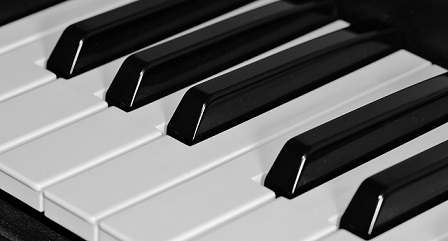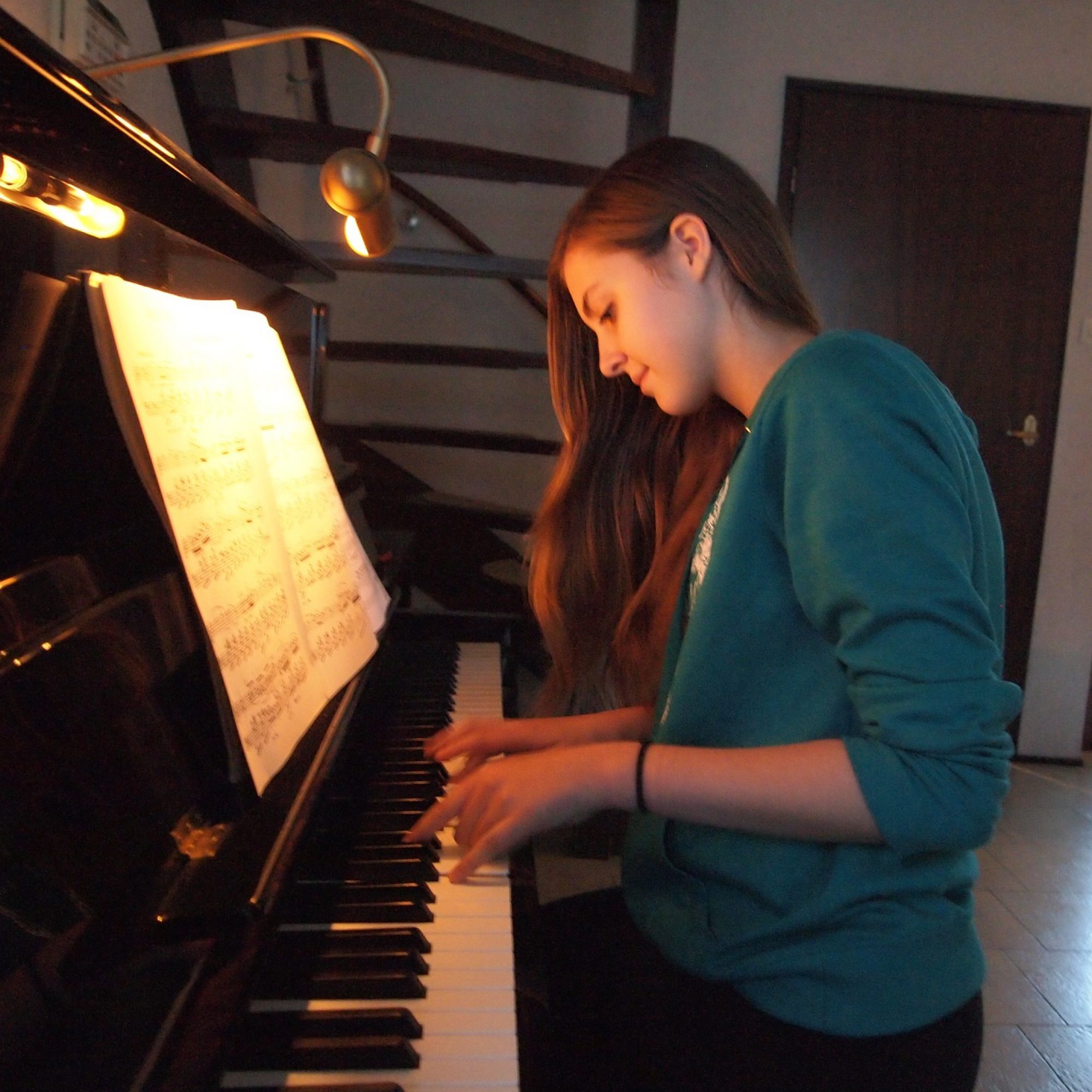
Let me share my story when I was a teenager. I thoroughly practiced my favorite Chopin Fantasie Impromptu inside and out. I memorized it very well. Now it’s the recital season. I was very excited and nervous at the same time. Now here is my turn, at my teacher’s annual student recital in California. Getting up on the stage, played the first octave chord, then…..
On the stage, my heart was pounding like locomotive train engine, my hands were sweating, my knees were shaking, I was rushing through the notes, and all the notes were so blurry that I could not hear anything!
The rest of my performance was a disaster…
Not sure if you have had a similar experience before. This type of disaster happened to me several times during my teenage years.
Back then, I was given an instruction as “Don’t rush the music on the stage.”
OK, but I still kept doing this “rushing” thing over and over again even after this incident. Something was not working for me.
Now I think back, I believe that I was lacking the habit of “step back and analyze” WHY I am rushing on the stage. Now I can think possible reasons WHY I rushed on the stage:
- My heart was pounding
- I get nervous every time I get on the stage
- I was pushing piano pedal like driving a car, meaning I never took off the pedal for an entire page of the music. It was my crutch.
The third bullet is particularly important. I don’t know about you, but I used to hold onto pedal like a crutch. It was my security blanket. I kept pushing it as if piano pedal was my savior from drowning myself. Actually, it is quite contrary. Holding onto the piano damper pedal all the way across the entire music (!) will definitely generate muddy, unpleasant sound. I was drowning the audience!
Then you may be thinking: “Then you can take pedal off time to time.“ Yes, pedal is provided for the enhancement of sound quality, not for the crutch to hold onto the entire music.
It was all in my nerve.
In another word, I needed to control my nerve not to hold onto pedal.
It was all in my nerve.
I am not a psychologist, so I cannot explain what was the state of my mind at that time. That said, I can say one thing. In order to confidently perform piano on the stage, we need to work on our nerves, not just mechanics of notes, musicality, and finger positions. It is natural to get nervous on a stage. Everybody gets nervous on stage! It is natural for our heartbeat to get faster than usual. That said, how to control our nervousness on the stage is the biggest lesson.
When I practice for a performance, I imagine that I’m practicing in front of 50000 people out in the stadium (or big concert hall). I create my practice environment to get nervous at home. We all can do this. It is up to your imagination.
- Pushing pedal like a crutch comes from nervousness.
- Heartbeat nightmare comes from nervousness.
- Knee shaking comes from nervousness.
Within the 3 points above, the only thing I seem to be able to control is the pedal. At home,
- I experiment playing the music without using pedal
- I use a minimal pedal
- I play music using pedal normally
By using imagination and working a music with options of pedal usage, my brain is programmed to cope with many choices, and it is sending a message to my foot. Of course, the ultimate solution is to “listen” carefully to the sound I create on the stage. In order to do so, we may want to get rid of this “nerve” thing. It takes years of practice (at least for me) to get there.
That said, there are genius who can do this without even thinking about it! I will leave them at “Genius Blogs”, haha 😊
Controlling the damper pedal (foot) activity during daily practice can minimize some of the nervousness on the stage.
Just remember, damper pedal is not the crutch. 😊
Happy practicing!
